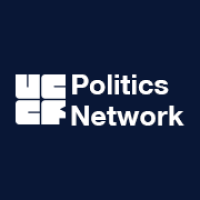Book overview:
Schiess’ book examines how evangelical culture in the States has been shaped and driven by the political divisions and idols of the USA. This work seeks to help Christians understand the formative power of the political world, drawing deeply upon the work of James K.A. Smith and Augustine. Yet, the book is more critical than that. It calls on Christians to examine their own political idolatry and reformulate their communities so that they might be a deeply counter-cultural oasis of political formation for the glory of God and the good of their neighbour.
Discussion:
- What was your initial reaction to this book? What did you like/dislike?
- What is spiritual formation and why does Schiess place such an emphasis on its political role? pp.8-17
- How has liberalism shaped our private and public theology as Western Christians? pp.24-25
- In what ways has this been positive?
- In what ways has this been negative?
- Schiess argues that ‘loyalty is the primary framework of political participation, [and] fear is the primary language’ (p.33). Do you agree? Why/why not?
- How do our loves and loyalties shape our politics? How can you see this in your own life?
- What are the dangers of misplaced loyalties?
- What are idols and where might they be present in our political participation today? pp.35-37
- How does idolatry lead to societal injustice?
- Where do we see this in our society today?
- The Christian gospel is a ‘powerful communal story’ – how does the redemptive plan at the heart of the gospel transform our (Christians’) public theology and engagement? Think about the following features Schiess draws attention to… pp.56-63
- Witnesses to His redemptive work
- A sign of the coming kingdom
- A force for flourishing
- In what ways are these both creationary and anticipatory? (p.68)
- How does the church fit into this mission? What is significant about the gathering of a community? pp.77-92
- In what ways is the church ‘political’? pp.93-113
- What role might the sacraments play in all this? pp.103-111
- What role might the church calendar have? pp.114-130
- What about spiritual disciplines such as prayer, sabbath, and feasting/fasting? pp.135-154
- Schiess gives three Augustinian principles for moving towards a more positive political contribution. What are they and what difference might they make to our political engagement?
- Critique of perfection (p.158)
- Reading history – or not (p.161)
- Confession as political action (p165)
- What is eschatology and why does it matter in the day to day grind of politics? pp.169-187

